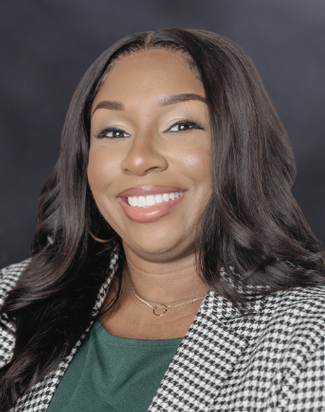Curriculum Vitae
Biography
Amber Adgerson, Ph.D. is currently an Assistant Professor of Elementary Education in the Department of Teaching, Leadership & Professional Practice in the College of Education and Human Development at the University of North Dakota. She has over a decade of experience as an upper-elementary and middle-school educator and is an advocate for on-site teaching methods courses (embedded coursework) in local schools. She earned her B.S. in Elementary Education from Winthrop University, her M.Ed. in Divergent Learning from Columbia College, and her Ph.D. in Teaching and Learning from the University of South Carolina.
Her primary research interests include: STEM identity development, virtual STEM education, STEM teacher education, STEM education for underrepresented populations, early childhood/elementary education, K-12 teacher and teacher educator development, K-12 teacher and teacher educator identity development.
T&L 474: STEM Concepts in the Elementary Classroom
Elementary school teachers must know and understand the fundamental concepts and practices in all domains of science (physical, life, earth, and space sciences), as well as how technology, engineering, and math are integrated into this subject matter, so that they can plan and effectively implement meaningful and engaging STEM learning experiences for their students. This course provides a foundation in the science content necessary for elementary teachers to know through a hands-on, inquiry-based approach. Further, it introduces students to effective teaching strategies for not only integrating the components of STEM across all science domains but for making STEM accessible for diverse learners as well.
T&L 430: Social Studies Methods in Elementary Schools
To understand and analyze the different modes of teaching social studies, to gain the competencies necessary for organizing a unit in the social studies, to gain an understanding of the values and multiple perspectives inherent within the various teaching strategies, to develop a preferred perspective on the ideal nature of Social Studies education.
T&L 444: Assessing and Correcting Mathematics Difficulties
The focus of this course and the co-requisite practicum is to learn about current approaches to assessment and methods to assist students who are having difficulty with mathematics. Observations, error pattern analysis, interviews, and other evaluation procedures are used to learn about elementary students' mathematical abilities, and these assessments are used to plan for instruction.
T&L 433: Multicultural Education
This course is designed to implement a multicultural approach to teaching and learning by examining how race, ethnicity, and culture influence students' experiences in schools. This course's content provides teacher candidates with the knowledge and concepts they need to enhance their understanding of socio-cultural consciousness through culturally responsive and relevant pedagogy. Teacher candidates will understand how to develop appropriate, informed, and sensitive responses to the rich diversity (gender, sexuality, exceptionality, age, socioeconomic status, religion, ethnicity, race, language, and culture) of student learners in the classroom as a pathway to be inclusive. This course explores immigration and refugees' issues and examines cultural assumptions, implicit biases, attitudes, and values that shape our perceptions and predicate our actions. This exploration prepares teacher candidates to create spaces in their learning environments where all learners are supported through acknowledgment of multiple identities, funds of knowledge, and experiences to surface and interrupt oppression. This multicultural course highlights the effects of settler colonialism on Native Peoples. This course will help students to learn about the American Indian Reservations in North Dakota: The history, language, school settings, population, tribal governments, sovereignty laws, and early education for North Dakota's Native Peoples. Note: course requires you to complete 10 hours of field experience working with students from diverse backgrounds.
T&L 432: Learning Environments
The purpose of this class is to study psychological, social, and cultural factors that influence classroom behavior and to examine elements that contribute to a positive learning environment. An additional 15-hour field experience is required for the course over a three-week period.
- STEM identity development
- virtual STEM education
- STEM teacher education
- STEM education for underrepresented populations
- early childhood/elementary education
- K-12 teacher and teacher educator development
- K-12 teacher and teacher educator identity development
- critical discouse analysis
- suvey design and development
- preservice teacher supervision and evaluation
- improvement science
- social media management
2023 Ph.D. in Teaching and Learning Outstanding Research Award, University of South Carolina. (April 2023).
2022 Clinical Practice Fellow, Association of Teacher Educators (ATE). (February 2022).
2020 Eddie B. Griffen Memorial Award for Outstanding Graduate Student Position Paper, Southeastern Association for Science Teacher Education (SASTE). (October 2020).
2019 Southern Regional Education Board State Doctoral Scholars Program (invited scholar), Southern Regional Education Board (SREB) Doctoral Scholars Program. (October 2019).
Ph.D., University of South Carolina, 2023
Major: Teaching and Learning
M.Ed., Columbia College, 2013
Major: Divergent Learning
B.S., Winthrop University, 2009
Major: Elementary Education
